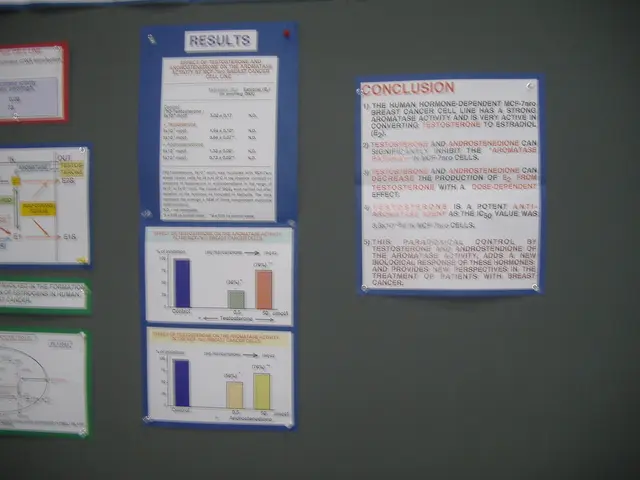Enhanced nutritional treatment units unveiled for proactive health management enhancements
Let's dive into the Ministry of Health's fresh wave of change:
Dr. Ahmed Al-Awadhi, the health boss, has dropped a bomb with his latest decision - establishing therapeutic nutrition units in all districts! According to the Arabic daily Al Jarida, this is the Ministry's push to beef up prevention and improve holistic healthcare for our citizens and residents.
Here's the lowdown: The Ministry is all about making therapeutic nutrition a crucial part of their game plan, particularly within primary healthcare programs. Why? You might ask. Well, these programs serve as our primary defense against many chronic diseases caused by shoddy diets and bad lifestyle choices.
Now, what do these nutrition units do exactly? They'll provide close technical supervision to nutrition clinics related to primary healthcare centers, all in collaboration with the ministry's Nutrition and Food Services Department. The goal? To standardize processes, apply crack-top international best practices, and offer specialized nutritional consultations based on solid scientific evidence.
What's more? The Ministry ain't messing about. They're all about delivering top-tier healthcare services, boosting satisfaction among the beneficiaries, and kicking chronic diseases and their evil causes to the curb. How? By promoting healthier nutritional habits and boosting community awareness about the ins and outs of nutrition - all part of the Ministry's vision for a sustainable, healthy future and an empowered society.
So, let's break it down: The Ministry's strategy for these units signals a broader commitment to incorporating nutrition into public health policies. Here's the juicy bits:
- Nutrition as Prevention and Treatment Powerhouse: By making nutrition central, they aim to strengthen both preventative and treatment strategies. This comes down to smart dietary interventions and personalized nutritional advice for managing chronic health conditions and improving overall health outcomes.
- Centralized and Accessible Nutrition Services: The move to set up units nationwide suggests an effort to make specialized nutrition expertise available to communities across different regions. This brings expert nutritional guidance closer to home.
- International Best Practices in Action: The units might line up with global nutrition initiatives like SMART (Specific, Measurable, Achievable, Relevant, and Time-bound) commitments. These commitments focus on setting clear goals and deadlines for improving nutritional health outcomes.
- Sustainable Health Approach: The Ministry's goals align with a vision of sustainable healthcare emphasizing early intervention, management of conditions through diet, holistic well-being, and cultural and environmental sensitivity.
- The Ministry's strategy for the new nutrition units signifies a broader commitment to incorporating nutrition into public health policies, focusing on both preventative and treatment strategies.
- The decision to establish nationwide units aims to make specialized nutrition expertise readily available to communities in various regions, bringing expert guidance closer to home.
- The units may adhere to global nutrition initiatives such as SMART (Specific, Measurable, Achievable, Relevant, and Time-bound) commitments, which prioritize setting clear goals and deadlines for improving nutritional health outcomes.
- The Ministry's vision for these units centers around a sustainable healthcare approach that emphasizes early intervention, management of conditions through diet, holistic well-being, and a sensitivity towards cultural and environmental factors.







